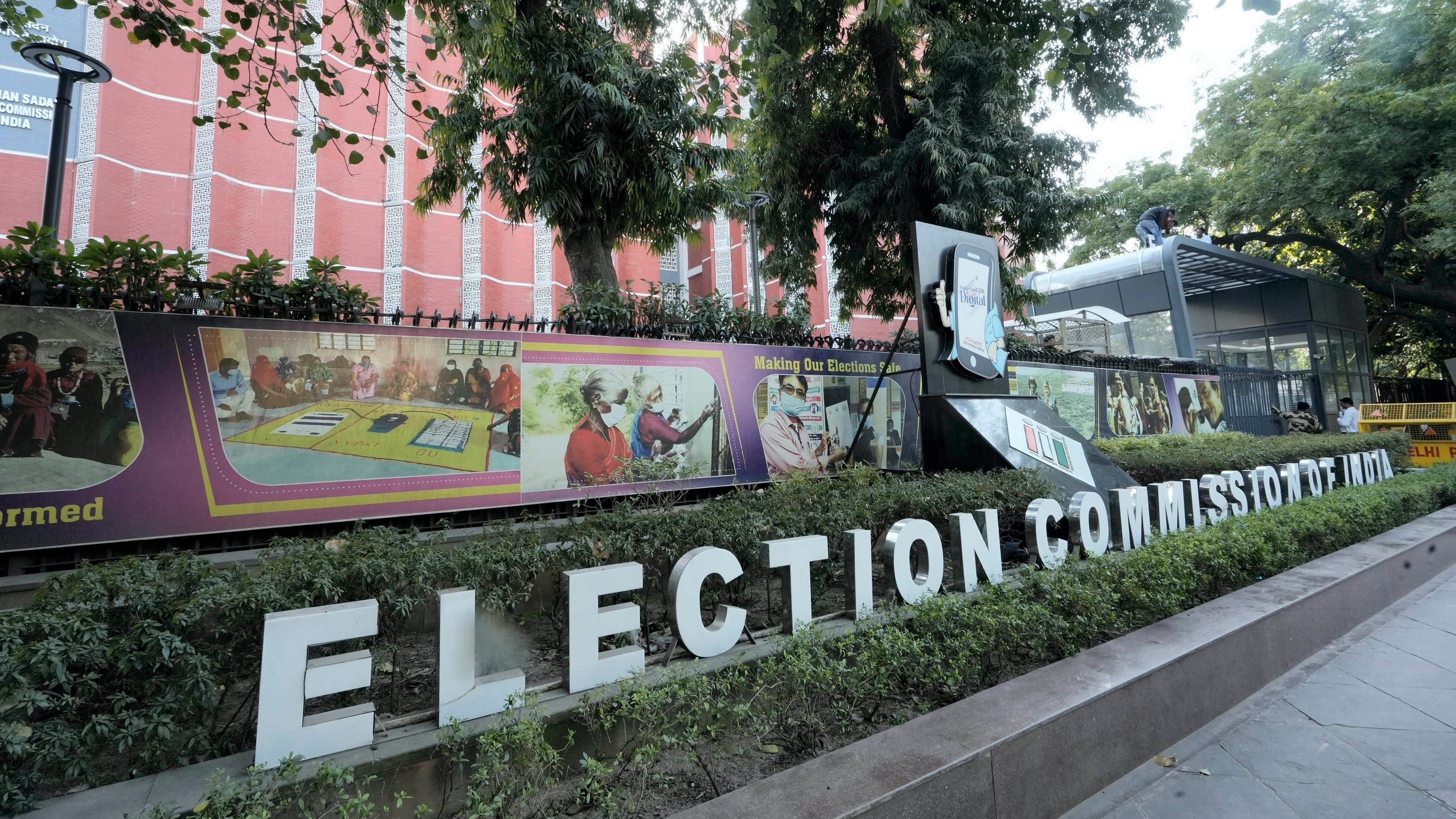
The signboard of the Election Commission of India (ECI).
Credit: PTI File Photo
Mumbai: The Election Commission of India (ECI) and the Maharashtra State Election Commission have taken enough steps to create awareness about the 'None of the Above' (NOTA) option on electronic voting machines (EVM), the Aurangabad bench of the Bombay High Court has said.
A division bench of Justices Ravindra Ghuge and R M Joshi made the observation on March 22 while dismissing a public interest litigation (PIL) seeking direction to the ECI to create awareness about the NOTA option.
A copy of the judgment was made available on Monday.
The petition filed by Suhas Wankhede, a student, stated that the ECI ought to appoint a brand ambassador to create more awareness among people about the NOTA option while they cast their votes.
Taking note of a voters' guide pamphlet issued by the ECI, the court said the instructions about NOTA were published in bold letters in the document.
"The long form of NOTA is conspicuously mentioned in bold letters and catches the attention of the voter immediately. The instructions are also set out in bold letters that NOTA is available as the last option on the electronic voting machine," the court said.
The pamphlet was a pictorial guide to voters to make them aware of their rights and duties, it said.
The court noted that both the ECI and the state election commission have taken steps to make people aware of their voting rights and the option of NOTA, and hence, no further directions are required to be passed.
The court further said it was refraining from imposing a fine on the petitioner as he was a student.